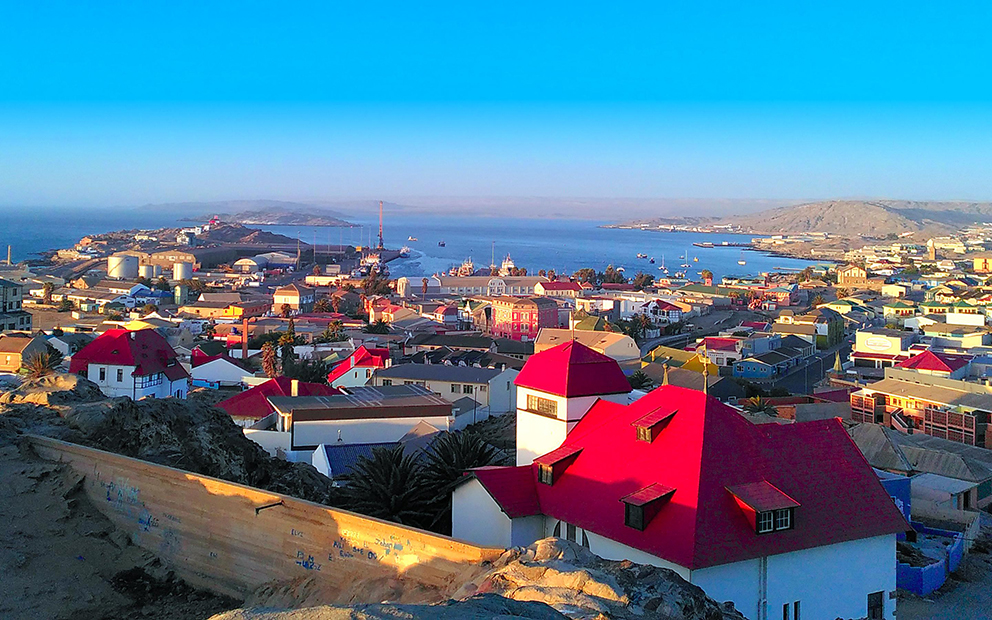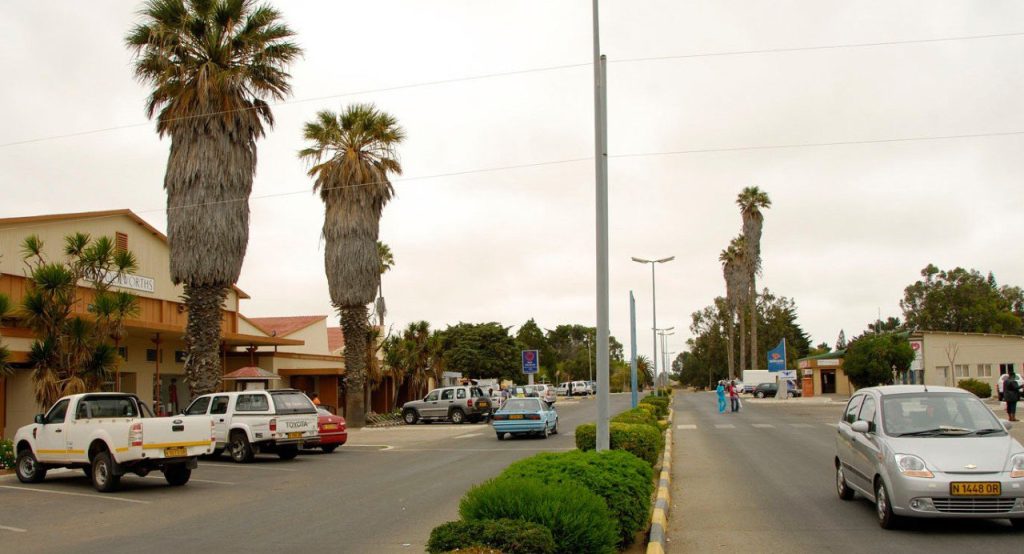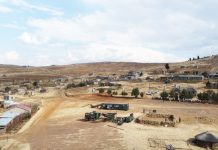22 August 2024
Lüderitz mayor Phil Balhao says residential property prices at the town have increased by 30% to 50% over the past year.
The discovery of 11 billion barrels of offshore oil in the Orange Basin has positioned Lüderitz and Oranjemund as potential hotspots for an oil and gas boom. However, the discoveries could also have a downside: a surge in housing and property prices.
What is happening at Lüderitz is consistent with similar developments in other ‘oil towns’ worldwide.
Wealthy individuals and foreign investors, who have no need for Namibian bank loans, snap up properties with ‘loose’ cash. Residents, including the poor, are then stuck with higher rental prices as the cost of land increases. This pushes the poor, who live in the locations and squatter settlements north and east of the centre of Lüderitz, into ever more difficult circumstances. Rising land prices can even force low-income residents to move out of Lüderitz altogether.
Balhao told The Namibian this week he was not surprised about the property market boom.

“Many multinational companies in the oil and gas sector have approached us for land, but there is so little available,” he said.
The mayor further said the municipality has approached the government to expand the town’s boundaries.
“Only an increase in the supply of land around Lüderitz can alleviate the situation,” he said.
Balhao said Sperrgebiet Diamond Mining has taken over the mining lease around Lüderitz from Namdeb, and has been negotiating for an expansion.
Two months ago, Balhao highlighted the lack of financial support from the central government, state-owned enterprises and providers of low-cost housing.
“We need solutions that speak to the situation on the ground at Lüderitz in order to cement or lay the foundation for the successful development of these industrialisation efforts of Namibia and especially the //Kharas region directly,” he said.
AN ARM AND A LEG
Bank officials at Lüderitz who spoke to The Namibian last month said many residential properties are now being sold above valuation.
According to property valuers in the Lüderitz area, average residential properties are now selling for between N$200 000 and N$500 000 above their valuation price.
This means, at least in theory, banks are unable to provide mortgages that cover the full value of the properties, leading to many purchases being made in cash.
The price rise at Lüderitz is caused by foreign investors who can buy properties in US dollars at prices that, by global standards, are considered to be extremely cheap.
Companies such as Kelp Blue, the Hyphen Hydrogen Energy project, as well as oil and gas exploration, are expected to push prices further, unless the bottleneck in the supply of land is addressed.

AN ISLAND
Lüderitz is described as an ‘island’ due to its geographical and historical context within the Tsau //Khaeb National Park, formerly known as the Sperrgebiet. The park is a vast restricted area, established in 1908 by German colonial powers to safeguard their diamond mining operations.
Lüderitz is bordered by the vast Atlantic Ocean to its left and the restricted diamond mining area, the Sperrgebiet, to its right, south and north.
Realtors and bankers at Lüderitz said the Sperrgebiet and the impending oil boom are the reasons why the southern port town may miss out on the commercial opportunities offered by the oil rush.
The property price boom has not yet pushed up rental prices for lower and middle income properties, which have increased by 10% in the last year, according to local realtor Lourinda Liebenberg.
While rental prices for foreign tenants have increased substantially, rental prices for locals have been slow to adjust upwards.
PROPOSAL
To address the land shortage, Balhao has proposed the allocation of more land for low-income housing and the building of two satellite towns, 25km and 50km away from Lüderitz, respectively, in an easterly direction along the road to Aus.
This proposal for the two satellite towns is currently being discussed with the government.
An option suggested by residents is to scrap the Sperrgebiet boundaries as they currently stand altogether to allow Lüderitz, a small town of some 16 000 people, to grow naturally along the Aus road towards the ghost town of Kolmanskop.

THE DIAMOND NEIGHBORS
The problems faced by Lüderitz are also affecting Oranjemund, a town situated about 400km away on the border with South Africa.
Oranjemund has, according to the town’s acting chief executive, Charles Kakuru, developed land though at least 16 extensions and 200 to 300 serviced plots.
Although Shell officials have visited the town, town officials say no commitments have been made to locating there.
It’s not only the impending oil boom that is pushing up property values at Oranjemund.
One property valuer said: “To indicate the current shortage of rental properties at Oranjemund, one person recently rented a converted garage, that does not even have an ablution block, for N$5 000 per month.”
Namdeb, as the historical owner of a very large part of the land at Oranjemund, could be a key factor in deciding the direction of the town.
Namdeb’s chief operating officer Jurgen Jacob says the rising cost of housing at Oranjemund is not as severe as at Lüderitz because the town council is making land available to residents.
– Roman Grynberg is a professor of economics, author and academic. You can contact him at: r_grynberg@hotmail.com






